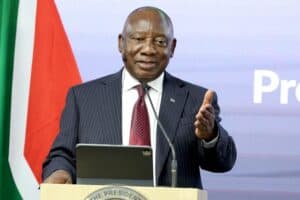Since the introduction of austerity measures in December 2013, a 7.7% drop in government spending on nonessentials had been recorded.

Projects managers on school construction projects will in future have to explain to provincial treasuries if they exceed their budgets. This was one of several measures introduced by National Treasury to ensure taxpayers got better bang for their buck.
It enables Treasury to interrogate cost overruns, track trends, make changes to the cost model and, where necessary, take corrective action, according to the medium-term budget policy statement (MTBPS). Since the introduction of austerity measures in December 2013, a 7.7% drop in government spending on nonessentials had been recorded.
The measures related to items like travel, catering, entertainment and the hiring of consultants and venues. But the cost of essential goods and services, including medicine, fuel, computer and laboratory services had increased by 2%.
Spending on infrastructure maintenance and contracted health services also increased. Government planned to continue with procurement reform and to submit the Public Procurement Bill for approval to Cabinet before April.
The Bill would consolidate the legal and policy framework for public sector supply chain management and provide for an apex procurement authority that would ensure public procurement was fair, equitable, transparent, competitive and cost effective. Government also aimed to expand its transversal contracts over the next three years.
This enables different organs of state to buy goods and services at pre-negotiated prices, decreasing the administrative burden. There are 50 such contracts, covering 23 000 items valued at R37 billion. Treasury targets savings of R400 million per year just on the central procurement of telecoms services.
Support Local Journalism
Add The Citizen as a Preferred Source on Google and follow us on Google News to see more of our trusted reporting in Google News and Top Stories.






